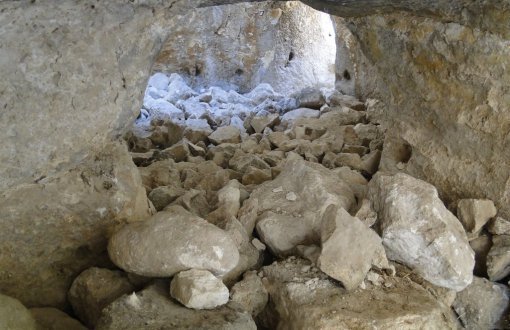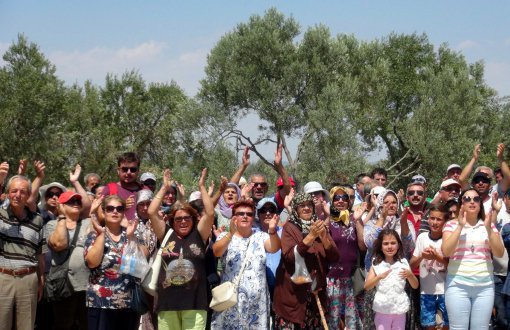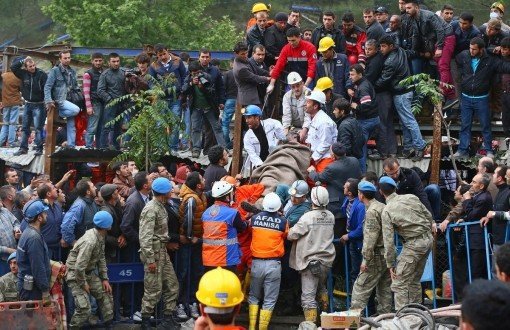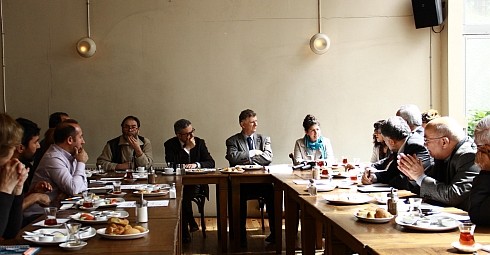
Peace Assembly of Turkey organized a panel yesterday in Istanbul on how to assure a long-lasting peace between PKK and Turkish government.
Hakan Tahmaz, the assembly spokesperson, said whoever is for peace should support the ongoing process without having any "but"s at a period where PKK guerrillas' withdrawal is at stake.
"In order to assure a long-lasting peace, Turkey's Anti-Terror Act should be amended, village guard system - a war time practice - should be cancelled and a truth commission should be formed," Tahmaz said.
Former guerrilla speaks up
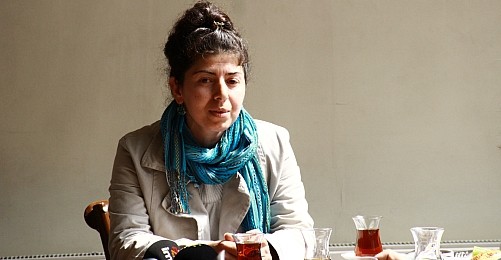
One of the panel speakers was Ayşe Karabaş, a former PKK guerrilla who withdrew after an appeal from Abdullah Öcalan, PKK leader, in 1999. She was active duty guerrilla for two years at the age of 16. She was released after six years of prison term.
"In 1999, PKK lost many guerrillas due to clashes. This time, the process should happen under the umbrella of legal assurance," Karabaş said.
She described her withdrawal experience in 1999 as follows:
"During our withdrawal, we had to walk for two days. The Turkish Ar
my already knew our trail since there was another withdrawal group before us. There were serious operations and ambushes at us. We couldn't go anywhere whichever way we took. We had to clash with them for 3 hours because they attacked us. 14 of my friends fell as martyrs. I was left all by myself."
"I climbed a tree and waited there until next morning. Next morning, I found the corpses of my friend. They were all stripped naked. Then brigade commanders and village guards arrived. I wasn't by myself. As soon as I climbed down the tree, I was battered by the commander who said 'Either you speak up or I will leave you to the guards and they will rape you'. I had nothing to say, I was so weak. This is why I am worried about the withdrawal process now."
Aktar: Not only with pledges by Erdoğan and Öcalan
Cengiz Aktar, an academician and author, said a long-lasting peace can only be restored under a judicial umbrella and not pledges by Erdoğan and Öcalan.
"How will PKK guerrillas return home after an amnesty? We need a commission for that. We observe that some NGOs are working on a discourse but the government has yet to do anything about it. We need judicial, constitutional reforms. This wont happen without including decentralization in the constitution. Demilitarization, military discharges and reintegration of PKK guerrillas should be assured. We need legal assurance for that," he said.
Tarhanlı: From a punitive approach to a restorative one
Academician Turgut Tarhanlı, on the other hand, underlined that a long-lasting peace required more than just laying down of arms but a different, detailed and long process which compelled assuring measures.
"These measure are very fragile. We need consistency and persistence from both parties. We observe that one of parties doesn't fully trust the justice system in Turkey. Their needs should be addressed immediately. The ongoing constitution drafting process is held as it is totally separate from the ongoing peace process. This may become a major obstacle in the future. We need to shift from a punitive approach to a restorative one. This is the only way for Turkey to re-open its communication channels that have long been clogged." (NV/BM)







